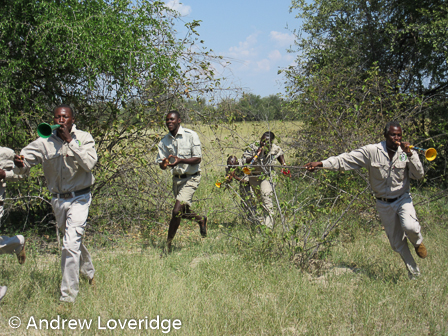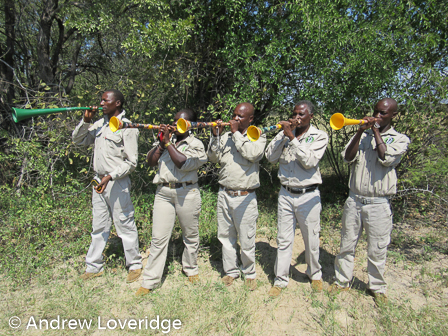News
Promoting coexistence between humans and lions, the effectiveness of the Long Shields Programme in limiting livestock depredation by lions in northwestern Zimbabwe
A study led by WildCRU’s Dr Lovemore Sibanda recently published in Oryx international Journal, assessed the long-term efficacy of the Long Shields Community Guardians programme, part of the Trans-Kalahari Predator Programme: a community-based initiative in northwestern Zimbabwe that seeks to protect livestock and prevent depredation by lions through non-lethal means (e.g., chasing lions), with the ultimate aim of promoting human-lion coexistence. Using a quasi-experimental design with before and after treatments, they compared livestock losses to lions before (2008-2012) and after (2013-2018) the Long Shields programme was implemented. In their study, Sibanda et al., found that farmers that were part of the Long Shields programme experienced a significant reduction in livestock loss to lions, and the annual number of lions subject to retaliatory killing by farmers dropped by 41% since the start of the programme in 2013, compared to 2008–2012, before the programme was initiated. These findings demonstrate the Long Shields programme can be a potential model for limiting livestock depredation by lions. More broadly, their findings demonstrate the effectiveness of community-based interventions to engage community members, improve livestock protection and ameliorate levels of retaliatory killing, thereby reducing human-lion conflict.
Sibanda, L., Johnson, P., Van der Meer, E., Hughes, C., Dlodlo, B., Mathe, L., . . . Loveridge, A. (2021). Effectiveness of community-based livestock protection strategies: A case study of human–lion conflict mitigation. Oryx, 1-9. doi:10.1017/S0030605321000302







